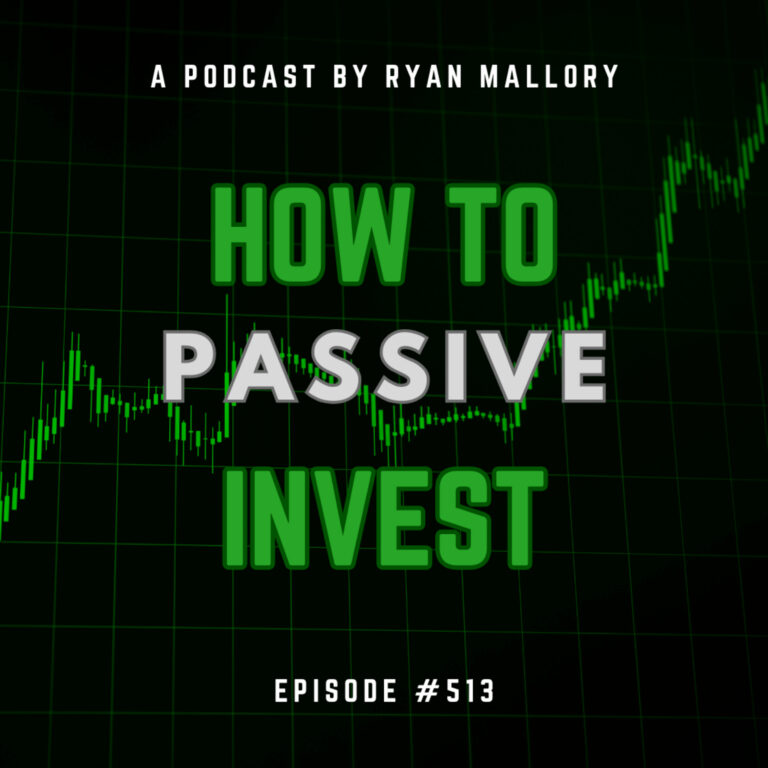Episode Overview
Once you have your swing trading strategy in place, how do you make sure you stick to the rules and risk parameters that you have set in place? In this podcast episode, Ryan tackles the hard truths of being undisciplined as a trader, even when you have a risk strategy and trading strategy in place to keep you from being undisciplined.
Available on: Apple Podcasts | Spotify | Amazon | YouTube
Episode Highlights & Timestamps
- [0:07] Introduction to the Episode
Ryan opens with the podcast’s purpose: to help traders succeed through discipline and risk management. - [0:45] Listener Email from “Leonard”
Ryan reads an email from a listener asking how to stick to trading rules and whether $0.69 per share is a good average return. - [2:46] Why Rules Are Easy to Break
Ryan compares breaking trading rules to breaking wedding vows, emphasizing that having rules doesn’t mean you’ll always follow them. - [6:33] Discipline and Self-Awareness
Ryan shares his personal journey and why understanding your own weaknesses is critical for disciplined trading. - [10:40] Risk Over Reward
He warns that chasing profits blinds traders to risk, and stresses that loving your process is essential for long-term success.
Key Takeaways from This Episode:
- Trading Discipline Requires Belief in Your Rules
Having a strategy is not enough, you must commit to following it under pressure. - Don’t Chase the “Glitzy” Stocks
Stick with the better setup, not the more popular stock. Avoid being emotionally swayed by ticker names. - Risk Parameters Come First
Set your stop losses and targets in advance and never let greed dictate your trades. - Paper Trading Isn’t Real Trading
The emotional challenges of real money trading can break discipline if you’re not mentally prepared. - Love the Process, Not the Profits
Focus on executing well-tested strategies consistently rather than obsessing over profits.
Resources & Links Mentioned:
- Swing Trading the Stock Market – Daily market analysis, trade setups, and insights by Ryan Mallory.
- Join the SharePlanner Trading Block – Get real-time trade alerts and community support.
Take the Next Step:
✅ Stay Connected: Subscribe to Ryan’s newsletter to get free access to Ryan’s Swing Trading Resource Library, along with receiving actionable swing trading strategies and risk management tips delivered straight to your inbox.
📈 Level Up Your Trading: Ready for structured training? Enroll in Ryan’s Swing Trading Mastery Course, The Self-Made Trader, and get the complete trading course, from the foundational elements of trading to advanced setups and profitable strategies.
📲 Join the Trading Community: Sign up for SharePlanner’s Trading Block to become part of Ryan’s swing-trading community, which includes all of Ryan’s real-time swing trades and live market analysis.
Full Episode Transcript
Click here to read the full transcript
0:07
Hey, I’m Ryan Mallory and this is my Swing Trading the Stock Market podcast. I’m here to teach you how to trade in a complex, ever changing world of finance.
0:16
Learn what it means to trade profitably and consistently, managing risk, avoiding the pitfalls of trading, and most importantly, to let those winners run wild.
0:25
You can succeed at the stock market and I’m ready to show you how. Hey everybody, this is Ryan Mallory with shareplanner.com’s
0:33
Swing Trading the Stock Market. And today’s episode, we’re going to talk about sticking to one’s trading rules.
0:39
How do you keep yourself from becoming undisciplined? That’s what today’s episode’s about.
0:45
That’s what the e-mail that I received, it’s a good, good question. I don’t know if I’ve really talked about this particular topic much either.
0:51
And that’s just once you have the rules, once you have your strategy in place, what are you going to do to stick to it?
0:57
So today’s episode comes from a guy. I don’t use their real name since I I’m from Florida.
1:01
I’m from I grew up redneck. I like to give people a good Florida redneck name.
1:06
And this particular case, I’m giving the guy the name of Leonard. Leonard writes Ryan.
1:13
My name is Leonard. You got to say Leonard correctly.
1:16
Like you can sound all debutant about and be like, hello, Leonard. But if you wanted to get that like nice grotto, it’s got to be a Leonard.
1:25
So my name is Leonard. Feel free to give me the best red nickname you got.
1:30
I did do that. Thanks for the episodes, they are great to listen to and learn from.
1:34
I greatly appreciate you being upfront with your faith and setting that example to your listeners. I’ve been trading or attempting to trade for a couple years now.
1:41
When I first started I didn’t know anything, but I thought I knew it all. Obviously I would have had better luck buying a Lotto ticket, crossing my fingers and holding a rabbit’s foot.
1:49
It didn’t go well, I realized I stunk at it and I had a lot to learn so I stopped throwing my money away and I’ve been listening and learning all while paper trading on thinkorswim.
2:04
I have a good set of rules that I have back tested a lot and they work very well to produce a decent outcome.
2:07
I have a couple questions I was hoping you could help me with.
2:34
Sincerely, Leonard, Good question. Leonard, The second question is a little bit interesting.
2:39
We’ll, we’re going to get to that one. That’s a different take that I’ve not really come across before, but we’ll we’ll tackle that one.
2:46
The first question I think we can talk a lot about because even if you have really good rules in place, it is still very, very easy to break those rules.
2:57
Just because you’ve come up with the rules doesn’t mean that you’re going to abide by the rules. I mean, let’s take wedding vows for instance.
3:04
Good illustration here I think. You take wedding vows.
3:07
How many people stand before, you know, 2 or 300 people and before a priest and before God? And they say for better, for worse and sickness and health richer for poorer till death do us part.
3:19
Yet you have a 50% divorce rate, if not more in America despite having said all these vows. Now I know I’m divorced.
3:27
I was divorced before and you know, I don’t ever plan on getting divorced again. That’s not going to happen.
3:32
And I’m happily married now. But there was a time where I was.
3:35
So I’m not trying to sound like a hypocrite here saying like, wasn’t this dude divorced? No, I’m not trying to be that way either.
3:40
I’m just stating the facts. I mean, there’s 50% of marriages in America, probably higher than that, where people do say vows.
3:46
They have their rules. You know, the rules that you’re laying out at your wedding ceremony.
3:50
And yet when times get tough, you know, one person isn’t rich enough or somebody’s dealing with a lot of health issues, and it’s just kind of easier to look away and to move on.
4:01
I had a guy that was once a friend, his wife got brain cancer, moved on, started sleeping around. I mean, you could say the vow is all you want, but if you’re not willing to follow them and not adhere to them, they’re not worth anything.
4:12
And really, society enables it.
4:17
I mean, goodness, I mean, today’s day and age, you can get divorced not liking that your spouse’s favorite color is red instead of green.
4:25
Personally, I like green over red. Red triggers me a little bit because that that’s usually dealing with losses on the stock market.
4:32
But the reason why I bring up marriage is because it’s a good example of having something that’s supposed to be very sacred, very important to you.
4:41
And the majority of the country doesn’t follow it. Now, I know, of course, that there is special cases where divorce is warranted.
4:48
I mean, you know, people deal with abuse or infidelity. That makes sense, but a lot of times it’s out of convenience too.
4:54
And that’s wrong. And likewise, when it comes to trading, we can have these great rules.
4:58
We can have a strategy that we’ve back tested sideways to Sunday and we know that the trading strategy works.
5:03
Yet when it comes down to the individual trades and and you’re having one of those moments where the trade is getting stopped out but still falls within the trading strategies parameters, you ignore it.
5:14
He’s like, no, I got to make my money here.
5:16
And what do you do? You become undisciplined.
5:19
You do something stupid and probably something that you’ll come to later regret. And if you don’t regret it, then guess what happens in the future when you’re faced with that same scenario?
5:28
You’d do it again and you’d do it again, and you’d do it again.
5:32
And then eventually that doing it again blows up your account. So you have to set those risk parameters and place and follow them.
5:42
They’re really not any good unless you actually believe and want to follow those. And that’s why so many people get messed up in the stock market is because they don’t care about managing the risk.
5:51
They don’t care about following their strategy.
5:54
They want to make money. And as stupid as it sounds, you have to put the risk parameters ahead of your own personal desires.
6:03
Going back to marriage, what makes for a happy marriage? What works?
6:07
Putting your spouse ahead of yourself, putting their needs ahead of your own, and likewise they do the same and all of a sudden you have a happy marriage.
6:17
Now, I’m not trying to get all Doctor Phil on you guys here, but I do think that it’s a good illustration of what it means to trading.
6:26
We have to stay disciplined in our trading. The moment we don’t become disciplined, you really won’t stop being disciplined.
6:33
For me personally, why do I adhere so much to risk management? I know that I’m a fallible person.
6:40
I know I’m a person that can make mistakes and really screw. I can make grave errors.
6:46
And once I become undisciplined, it’s very easy to stay undisciplined. It’s like the movie Dumb and Dumber.
6:51
Not like #2 I think there was a second Dumb and Dumber. I don’t even know.
6:54
There might have been a third Dumb and Dumber for all I care. The only Dumb and Dumber movie that counts is the first Dumb and Dumber.
7:01
And there was a scene where Jim Carrey, I can’t remember the character’s name that he’s playing, but Jim Carrey was in the car.
7:08
It was Lloyd, it was Lloyd. Lloyd’s in the car with Harry.
7:12
And Lloyd’s got to go to the bathroom. And so he starts peeing into a bottle and, and the bottle starts to get filled up.
7:18
He’s like, you got to stop, you got to stop. He says, what does he say?
7:20
He says the classic line, you can’t stop once you start. And like trading, you’re like Lloyd peeing into the bottle in the car.
7:26
And that it wasn’t, wasn’t the car that looked like a mutt or something was made to look like a dog. You’re like Lloyd, once you become undisciplined, you’re, you can’t stop.
7:35
And I know I can’t stop. So those rules, I sound very regimented.
7:40
You ask people in the trading block, I sound like I’m a broken record all the time. Like, well, that doesn’t fit my risk parameters.
7:46
Even though I want to trade that particular stock, I’m not going to because I would become undisciplined in doing so.
7:52
And I’m always still looking for areas of being undisciplined. One of the things I try not to do is not to let the stocks that you know, tend to glitter like your
8:02
Nvidias, your Apples or your metas to have any sway on my trading decisions. Like if you have one chart and you’re like, man, that’s like that’s a really good looking chart and
8:11
you got a chart that’s decent as well, but not as good as the first chart. But that second charts NVIDIA in the in the first chart might be Intel.
8:19
Let’s not use Intel because Intel has been in dog water lately. But let’s say it’s KLAC.
8:24
Definitely not as glitzy as NVIDIA, but it sets up better than NVIDIA. Which one should you take?
8:31
Take KLAC. But often times as traders, we can be swayed into taking NVIDIA instead because that’s the glitzy
8:38
one. That’s the one that sparkles.
8:39
That’s the one that makes dreams come true. KLAC, you don’t hear a lot of people saying, hey, because of KLAC, you know, I’ve made millions of dollars in the stock market.
8:46
No, but there’s people that’ll say that about NVIDIA.
8:50
And so it’s easy to kind of be swayed by the stocks that are glitzy in nature. So one of the things that I try to do is when I’m looking or examining stocks, I really don’t look
8:59
at the symbol on the page. I’m just looking at the price action.
9:01
If I like it, then I look at what the symbol is. So that way I’m not saying, OK, I’m looking at NVIDIA.
9:06
Let’s now look at the chart and see if there’s anything that that I can trade here. I don’t want that totality.
9:12
I just want to look at the chart and decide whether or not I I should trade it or not. And then if I do, then I want to be able to look at what symbol it is.
9:19
But again, it’s going to come down to having to believe in your rules and your strategies and your risk parameters that you have in place.
9:28
Because if you’re not willing to adhere to those, even at the cost of missing out on great trades and great opportunities, the chances are you will become undisciplined and you will mess up royally.
9:43
It’s not to keep going back to relationships, but I guess I’m going back to relationships.
9:45
I love my wife. I’ve mentioned that many times on the show.
9:47
When it comes to wives, I feel like I got the Unicorn. I got somebody that you talk about marrying up.
9:51
I married up. I love my wife, but if I didn’t love my wife, that is where I open myself, where I make myself susceptible to making really bad decisions as it pertains to a marriage, as it would for anybody.
10:08
If you hate your wife, you’re going to feel more entitled to do something stupid that could potentially end the marriage, possibly because you don’t care if it does.
10:14
But there’s consequences to that.
10:16
There’s alimony, potentially there’s child support if you have kids. Oh yeah.
10:18
So there’s there’s things that can definitely hit you and really mess you up. And likewise, if we don’t stay disciplined, if we don’t focus and believe in our strategy and in our system enough to follow it, then the consequences kind of like child support and alimony for person that’s married for trading, it could be that you blow up your account.
10:40
Your mind has to be geared towards the rules in the process. You have to love that, You have to want that.
10:47
Your focus can’t be on how much money could I make from this trade? Could I get rich from that trade?
10:51
Because the moment you do that, you’ve thrown discipline out the window. And everybody out there on Twitter and all the other social media platforms, they’ll only want to tell you how much money they’re making on a trade, on their winning trades, that is.
10:59
They won’t tell you about the losers, but they’ll tell you about their winners and the people offering services, I offer services too.
11:06
But I try to be honest because for one, I want to go to sleep at night and know that I’m not misleading people, but there’s plenty of others. I saw somebody the other day showing up on my timeline.
11:17
I got a 93% winning record that is BSA 100% BS is the scam. But there’s people that will tell you that how much money they’re making and then it’ll make you think that you’re doing something wrong, something wrong in your trading.
11:27
When in reality, if you’re following a process that you’ve been able to back test and be able to work, yes, it may not always work.
11:35
But if it’s working in the moment and it’s working for you after back testing it still, that’s a much better thing to a follow than just shooting after the dollars, focusing on how much money that you’ve made off of the trade because then you’re going to become undisciplined because it naturally propels you in that direction.
11:52
Before I get to question #2 though, swingtradingthestockmarket.com.
11:56
Yes, this is if you enjoy this podcast, then Swing Trading the Stock Market gives you access to all of my stock market research that I do everyday.
12:04
That’s going to be a lot of videos. That includes stock market updates, mega cap updates like Eli Lilly, Amazon, Microsoft, NVIDIA,
12:14
Tesla, Google, Apple. Did I say Apple?
12:18
Probably did? Maybe not, I don’t know.
12:20
But I do all those, OK, I follow them regularly. I create videos for you guys regularly.
12:27
Also, I send out a daily watchlist each and every day. And with that daily watchlist, you’re going to get all of my potential trades that I’m falling for that day.
12:34
And then later that day I do a watchlist review.
12:37
Also a video that I send to you. You can watch it and see, OK, what’s working, what’s not working.
12:41
And then at the beginning of each week, I’m gonna send out my bullish and bearish master watchlist for you to be able to see what list of stocks that I’m looking to pull trade setups from.
12:49
So check that out. swingtradingthestockmarket.com.
12:52
It’ll take you to my SharePoint website. Really cool stuff #2 Second question, he says I know risk to reward and how to trade that, but I was curious about how to much to make per share on a trade and what is a good amount.
13:00
With my rules and testing, I average about $0.69 per share within one to two days within holding a stock.
13:09
Is that a good amount for a short period of time or should it be more?
13:12
Now this is kind of a interesting question. I don’t, I know for a fact nobody’s ever actually asked this before on the show, but I don’t necessarily think it’s important.
13:19
And also, I would say it would depend, right?
13:23
Because if you’re making $0.69 per share and your average stock is priced like Berkshire Hathaway, which is trading in the hundreds of thousands, $0.69 isn’t much.
13:34
But if you’re talking about NEO, which it trades up, you know, 5 bucks, $0.69 would be a lot. So you really can’t make heads or tails of that because you really don’t know what the average share price is that you’re trading.
13:43
If your average share price is like $5, yeah, that’s phenomenal.
13:48
If your average share price is $5000, probably not that good. But again, I think some of that goes back to the focus.
13:57
My focus is on managing the risk. I wanna put myself into situations where when I’m managing the risk, the potential for profits, if the risk is managed correctly, is twice the amount of the risk that I’m taking on.
14:04
The actual share price of a stock doesn’t matter much.
14:12
It’s really what the risk parameters that I have set for the trade. And if I can let that trade run wild, if I can let that stock run, especially that last third of a trade after I’ve taken about 2/3 off the table, that’s where the bread and butter can really come into play.
14:26
Share price by itself doesn’t mean much to me. That’s why I don’t care about stock splits, for instance.
14:32
But having worked on the paper trades like Leonard is doing here, he started off trading live or with real money, and then he goes back to trading paper because you realize, OK, I’m not very good at this.
14:46
I need to come up with a process.
14:48
I think that’s a good move. But remember too, that when you’re trading with real money, that’s where the potential to become very undisciplined is.
14:56
Because with paper trading, if you get stopped out of a trade, you don’t care.
15:00
It’s like, OK, whatever, I’ll just find another stock. I didn’t lose anything.
15:04
Not a big deal. Paper trading can give you a false sense of security about yourself.
15:08
Actually, when you get into the real trading expect there to be additional pressures, especially from the emotion side and the ability to become undisciplined.
15:18
So you’ve got to make sure that you’re comfortable with the parameters that you’re setting in place, the risk management and the rules for that strategy because that strategy is doesn’t it’s not worth anything if you’re not going to follow it.
15:31
If you enjoyed this podcast episode, I would encourage you to leave me a five star review on whatever platform that you’re listening to me on.
15:39
Those are really greatly appreciated.
15:42
You might not think it would be much, but every individual one does matter. I see every one of them.
15:47
Also, make sure to check out swingtradingthestockmarket.com that help support this podcast.
15:56
And make sure to keep sending me your emails.
15:59
Send me your questions. If you haven’t done it yet, do it.
16:01
I want to hear from you. I want to hear your stories.
16:03
I want to hear the things that are troubling you. I know if you’re listening to the show, you have something that you want to ask me, do it.
16:08
I’m the only person that’s reading this. I’m not sharing it with anybody else.
16:10
I changed the name so I can protect you guys. Send it to me.ryan@shareplanner.com.
16:15
Thank you guys, and God bless. Thanks for listening to my podcast, Swing Trading the Stock Market.
16:21
I’d like to encourage you to join me in the Share Planner Trading Block where I navigate the stock market each day with traders from around the world.
16:29
With your membership, you will get a seven day trial and access to my trading room, including alerts via text, e-mail and WhatsApp.
16:35
So go ahead, sign up by going to shareplinter.com/trading Block. That’s www.shareplanner.com/trading-block and follow me on Shareplanners, Twitter, Instagram and
16:47
Facebook where I provide unique market and trading information every day. If you have any questions, please feel free to e-mail me at ryan@shareplanner.com.
16:56
All the best to you and I look forward to trading with you soon.
Enjoy this episode? Please leave a 5-star review and share your feedback! It helps others find the podcast and enables Ryan to produce more content that benefits the trading community.
Have a question or story to share? Email Ryan and your experience could be featured in an upcoming episode!
Follow Ryan Mallory on:
X |Stocktwits | Instagram | Facebook

Welcome to Swing Trading the Stock Market Podcast!
I want you to become a better trader, and you know what? You absolutely can!
Commit these three rules to memory and to your trading:
#1: Manage the RISK ALWAYS!
#2: Keep the Losses Small
#3: Do #1 & #2 and the profits will take care of themselves.
That’s right, successful swing-trading is about managing the risk, and with Swing Trading the Stock Market podcast, I encourage you to email me (ryan@shareplanner.com) your questions, and there’s a good chance I’ll make a future podcast out of your stock market related question.
Passive investing can be a great source of funds for retirement and for building a nest egg. In this podcast episode, a husband and wife asks Ryan's thoughts on building a SPY position on just $2/day. While consistent building a nest egg, is great, the timing and strategy in doing so is just as important.
Be sure to check out my Swing-Trading offering through SharePlanner that goes hand-in-hand with my podcast, offering all of the research, charts and technical analysis on the stock market and individual stocks, not to mention my personal watch-lists, reviews and regular updates on the most popular stocks, including the all-important big tech stocks. Check it out now at: https://www.shareplanner.com/premium-plans
📈 START SWING-TRADING WITH ME! 📈
Click here to subscribe: https://shareplanner.com/tradingblock
— — — — — — — — —
💻 STOCK MARKET TRAINING COURSES 💻
Click here for all of my training courses: https://www.shareplanner.com/trading-academy
– The A-Z of the Self-Made Trader –https://www.shareplanner.com/the-a-z-of-the-self-made-trader
– The Winning Watch-List — https://www.shareplanner.com/winning-watchlist
– Patterns to Profits — https://www.shareplanner.com/patterns-to-profits
– Get 1-on-1 Coaching — https://www.shareplanner.com/coaching
— — — — — — — — —
❤️ SUBSCRIBE TO MY YOUTUBE CHANNEL 📺
Click here to subscribe: https://www.youtube.com/shareplanner?sub_confirmation=1
🎧 LISTEN TO MY PODCAST 🎵
Click here to listen to my podcast: https://open.spotify.com/show/5Nn7MhTB9HJSyQ0C6bMKXI
— — — — — — — — —
💰 FREE RESOURCES 💰
— — — — — — — — —
🛠 TOOLS OF THE TRADE 🛠
Software I use (TC2000): https://bit.ly/2HBdnBm
— — — — — — — — —
📱 FOLLOW SHAREPLANNER ON SOCIAL MEDIA 📱
*Disclaimer: Ryan Mallory is not a financial adviser and this podcast is for entertainment purposes only. Consult your financial adviser before making any decisions.





